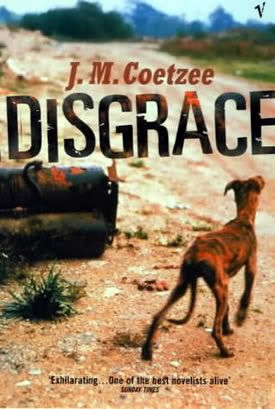JM Coetzee was a high profile guest at the 2016 Palestine Festival of Literature this month.
In a speech given on the final evening of the festival, Coetzee scrutinised the analogy frequently drawn between Israel’s treatment of Palestinians and apartheid South Africa.
Referring to the use of the word “genocide” to describe the Greco-Turkish War in the 1920s, Coetzee says certain words can create “an inflamed semantic wrangle, which cuts short opportunities of analysis”. However, he goes on to describe the system of apartheid and the system at play in Jerusalem and the West Bank today in almost indistinguishable terms, before ending with the words: “Draw your own conclusions.”
Scroll down for the full speech, transcribed by Books LIVE for your reading pleasure
Palfest is a travelling festival, held across the Palestinian cities of Ramallah, Jerusalem, Bethlehem, Haifa and Nablus, to counter restrictions on the freedom of movement in the West Bank. It has been dubbed “the Iron Man of literary festivals” because of the physical and psychological challenges participants and audience members face.
Gillian Slovo was a guest of the festival in 2013, and observed: “At most lit fests writers are there to be listened to. In this one, we are made silent by the pain of all we hear.”
Coetzee was joined by a number of literary giants at Palfest this year, including Pulitzer Prize finalist Laila Lalami and National Book Award winners Colum McCann and Barry Lopez.
By contrast, Coetzee famously declined to attend the 2012 International Writers Festival in Jerusalem, saying he would only travel to Israel when “the peace process goes forward”.
Read Coetzee’s Palfest speech, delivered at the Khalil Sakakini Cultural Centre in Ramallah on 26 May:
I came to Palestine to see and listen and learn. In the course of the past week I have seen and heard and learned a great deal. I come away with an enduring impression of the courage and resilience of the Palestinian people at this difficult time in their history. Also, of the grace and humour with which they respond to the frustrations and humiliations of the occupation.
I was born and brought up in South Africa and so naturally people ask me what I see of South Africa in the present situation in Palestine. Using the word ‘apartheid’ to describe the way things are here I have never found to be a productive step. Like using the word ‘genocide’ to describe what happened in Turkey in the 1920s, using the word ‘apartheid’ diverts one into an inflamed semantic wrangle, which cuts short opportunities of analysis.
Apartheid was a system of enforced segregation, based on race or ethnicity, put in place by an exclusive, self-defined group in order to consolidate colonial conquest and in particular to cement its hold on the land and on natural resources.
In Jerusalem and the West Bank, to speak only of Jerusalem and the West Bank, we see a system of enforced segregation, based on religion and ethnicity, put in place by an exclusive, self-defining group to consolidate a colonial conquest, in particular to maintain and indeed extend its hold on the land and its natural resources. Draw your own conclusions.
Watch the video:
Click here to view the embedded video.
- Not loading? Watch on YouTube
Related stories:
Book details
- The Good Story by Arabella Kurtz and JM Coetzee
EAN: 9781846558894
Find this book with BOOK Finder!
- The Childhood of Jesus by JM Coetzee
EAN: 9780099581550
Find this book with BOOK Finder!
- Diary of a Bad Year by JM Coetzee
EAN: 9780099516224
Find this book with BOOK Finder!
- Slow Man by JM Coetzee
EAN: 9780099490623
Find this book with BOOK Finder!
- Elizabeth Costello by JM Coetzee
EAN: 9780099461920
Find this book with BOOK Finder!
- The Master of Petersburg by JM Coetzee
EAN: 9780099470373
Find this book with BOOK Finder!
- Disgrace by JM Coetzee
EAN: 9780099289524
Find this book with BOOK Finder!







